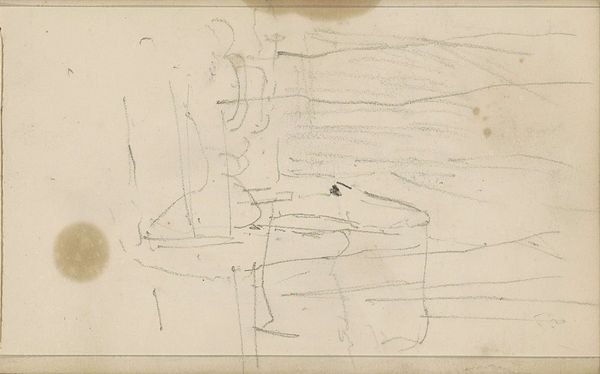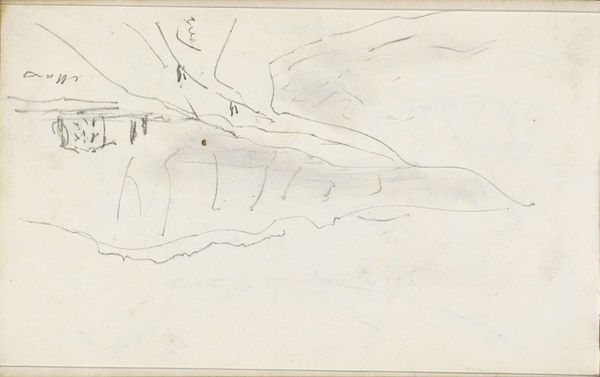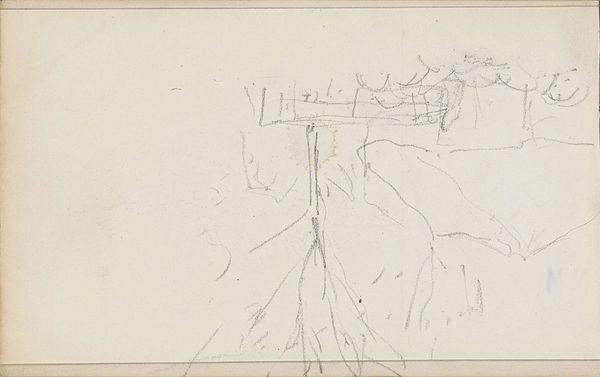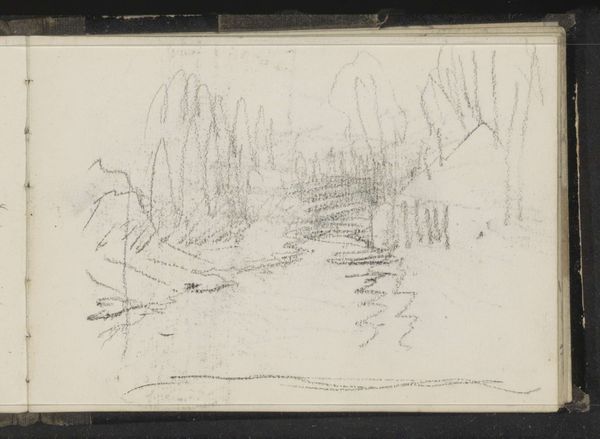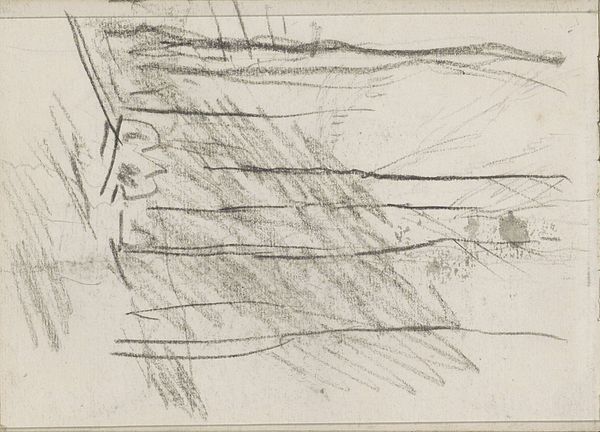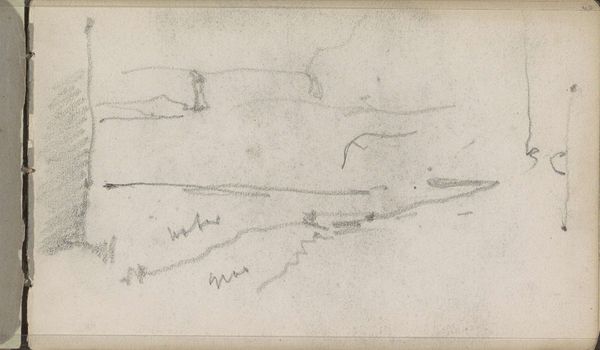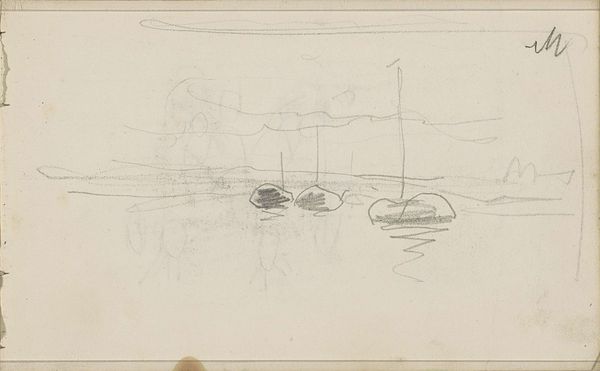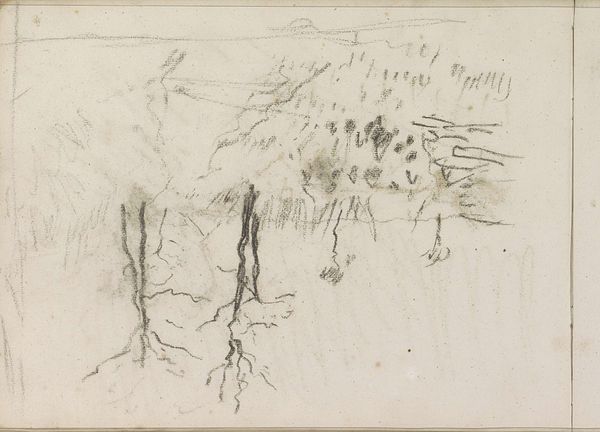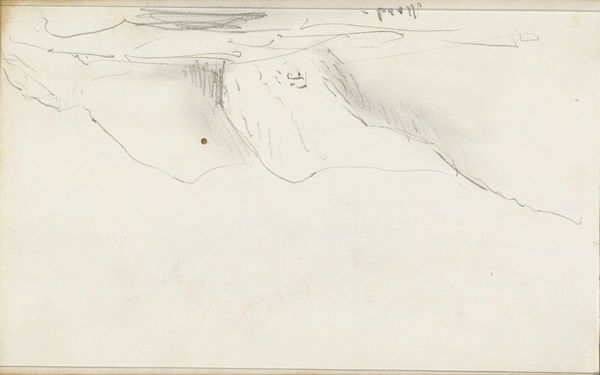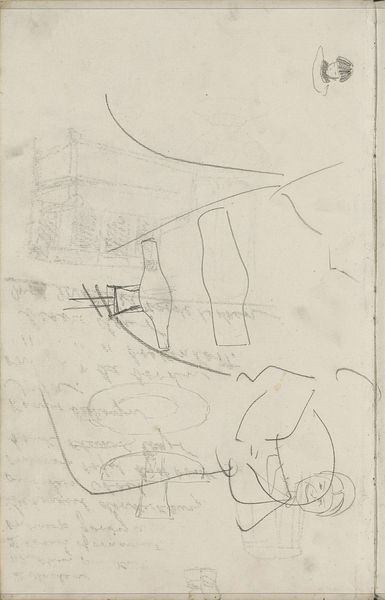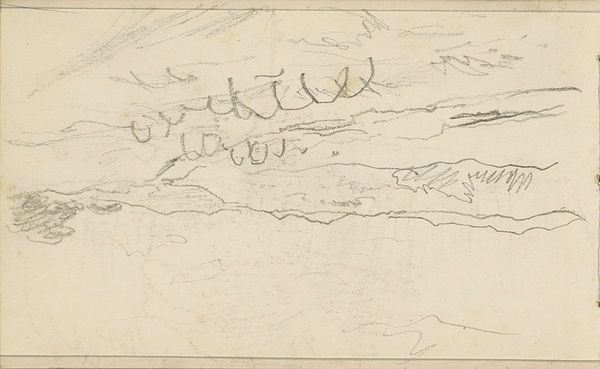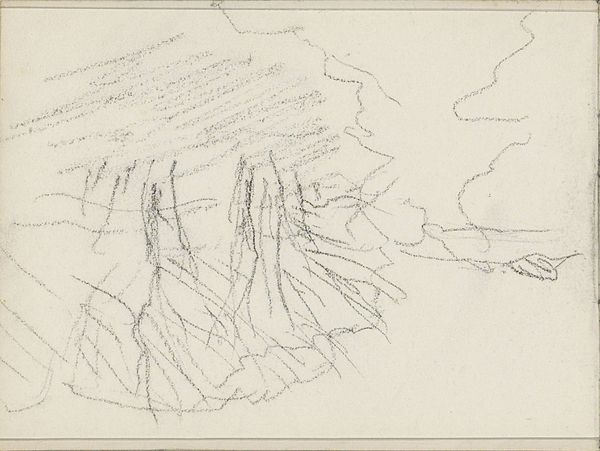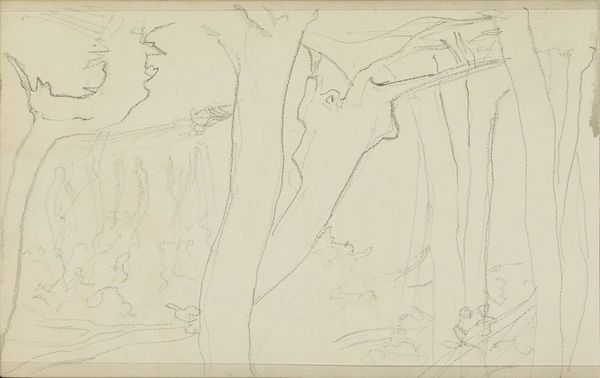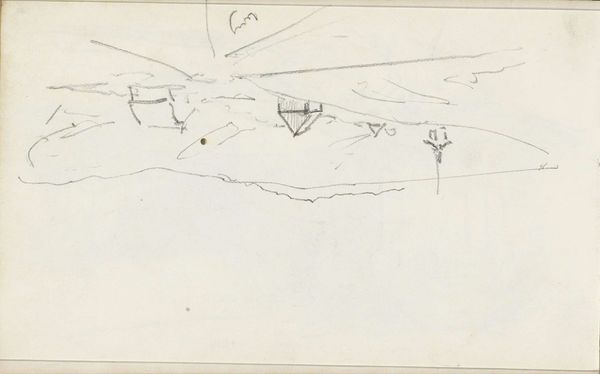
drawing, pencil
#
drawing
#
impressionism
#
landscape
#
pencil
#
line
#
realism
Copyright: Rijks Museum: Open Domain
Editor: This drawing, "Landschap" by Anton Mauve, likely created sometime between 1848 and 1888, is a pencil sketch here at the Rijksmuseum. The lines are so delicate, it almost disappears into the paper! What do you make of this sketch, and what visual elements stand out to you? Curator: The strength of this piece, beyond its representational qualities, lies in its structure. Notice how Mauve uses the horizon line, nearly centered, as a compositional anchor. Above, we see broken lines and varying densities suggesting a sky, or perhaps foliage, treated almost abstractly. Below, longer, more assured strokes create the suggestion of land. The contrast lies not so much in tone, but in the handling of line itself. Do you agree? Editor: Yes, definitely. It is not detailed but rather evocative through different pressures of lines and varied shapes. Did Mauve do more detailed work or would the focus of his works remain suggestive rather than explicit? Curator: While Mauve did create more highly-rendered works, this sketch displays his engagement with formal qualities that extend beyond simple mimesis. The focus here seems less about recreating a specific location, and more about exploring the potential of line to define space and atmosphere. Notice how the foreground seems almost incomplete, forcing the viewer to participate in the construction of the scene. Editor: That’s a fascinating point about the viewer’s role! It does feel like I’m filling in the gaps in the landscape. It’s making me consider how a piece can engage beyond just what’s depicted. Curator: Exactly. It is less about *what* is drawn but rather *how* it is. Perhaps that provides another dimension for interpreting "Landschap". Editor: I had not thought about that angle before, focusing on how the formal elements invite participation from the audience to complete the vision, to engage, rather than be presented a vision outright. I shall keep this in mind in my studies and gallery visits from now. Thanks so much for sharing your expertise.
Comments
No comments
Be the first to comment and join the conversation on the ultimate creative platform.
